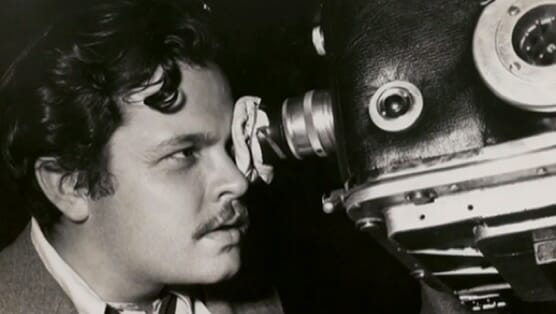Magician: The Astonishing Life and Work of Orson Welles

The life and work of Orson Welles was pretty astonishing. That one sentence sums up the (too obvious) thesis behind Magician: The Astonishing Life and Work of Orson Welles, Chuck Workman’s new documentary about the giant of stage and screen. Besides his five decades as an actor and director of radio, on Broadway and in movies, Welles actually worked as a magician here and there to pay the bills and raise money for charity. Yet the film only touches on this aspect of his career, throwing in a few clips of him doing tricks with little to no explanation why this towering figure performed such magic in Vegas or on I Love Lucy.
Workman certainly knows how to edit together archival material—he’s the editor of those signature movie montages that punctuate the Academy Awards broadcasts (and an Oscar winner himself, for a 1986 short film). The problem here is that he doesn’t have much to say, merely presenting the facts of a fairly well-known story with little depth or insight. To the degree that Magician works is largely due to its subject matter. Welles is utterly fascinating, and his impact on movies is monumental. Workman’s film basically starts on cruise control with its subject and lets Welles do the work rather than do much to be an interesting film in its own right.
Of course, to the uninitiated and to those who might have even seen Citizen Kane, the documentary is a more-than-passable introduction to his astonishing life and work—but ultimately it feels like a glorified Wikipedia entry. What the film does well is present motion picture footage that endures as a testament to the auteur’s genius. While Welles wasn’t a cinematographer himself, his films were characterized by stunning shot compositions (usually in black and white, as he only worked in color very late in his career) and use of sound.
Simply put, from Citizen Kane and The Magnificent Ambersons to Othello and The Lady From Shanghai to Touch of Evil and The Trial, Welles was responsible for some of the most amazing images in the history of cinema. It’s pretty hard to not come away from Workman’s film with a deep appreciation for Welles’ contribution to the craft, even if the audience doesn’t gain much understanding of the origins of this talent. Magician mentions Welles’ youth—he was a musician as a child and an accomplished Shakespearean actor in his teens—but there is little to suggest the genesis of his flair for the visual arts.
-

-

-

-

-

-

-

-

-

-

-

-

-

-

-

-

-

-

-

-

-

-

-

-

-

-

-

-

-

-

-

-

-

-

-

-

-

-

-

-








































